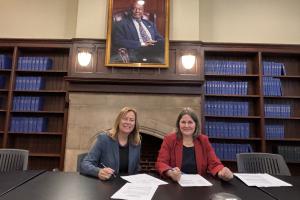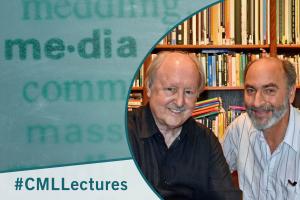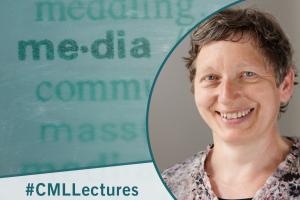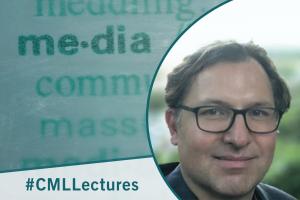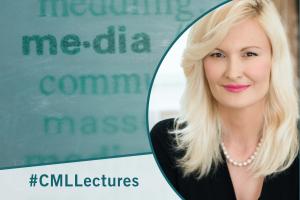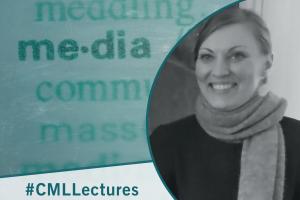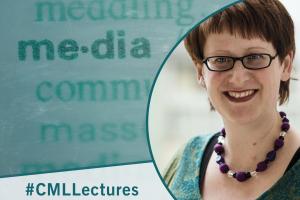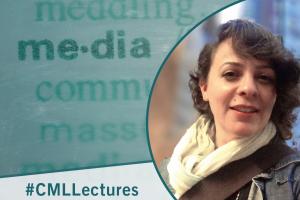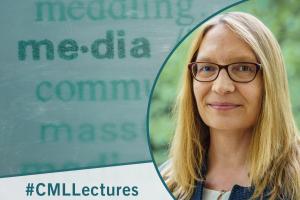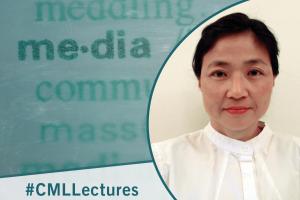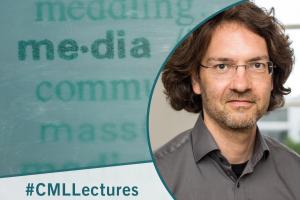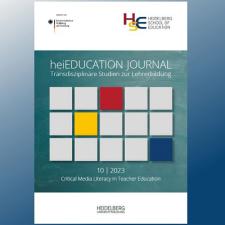A joint interdisciplinary initiative by the Heidelberg School of Education and Teachers College (Columbia University) that aims to enhance critical engagement with the media in various educational contexts.
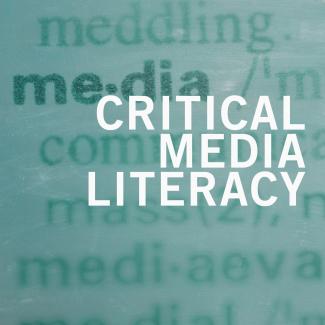
Media are crucial for how we all see the world and what we know of it. But what is required for engaging with media in responsible, democratic and creative ways? This joint initiative between the Heidelberg School of Education and Teachers College (Columbia University) recognises the need for state-of-the-art teacher education to include critical media literacy (CML) as a basic competence to bring into schools. Aimed at teacher education, this collaboration will facilitate the development of practical skills associated with media literacy and suggest tools for implementing them in educational contexts.
According to Prof. Dr. Michael Haus, previously one of two acting directors of the HSE and a professor for modern political theory at Heidelberg University: “If democracy is our understanding of how we want to live together and what we want to teach young citizens at school, we need to be aware how the usage of media affects democratic practice. We need to understand how media contribute to discrimination or mutual respect, to passivity or empowerment, to inequality or social justice.”
Dr. Portia Williams, Associate Provost for International Affairs and Assistant Professor in the Department of International and Transcultural Studies at Teachers College, Columbia University, argues that “In a world that is increasingly read and understood through the lens of diverse forms of media, including social media, it is important for teachers and students to think critically about how stories are told and who has the access and power to craft them.”
As a working definition of critical media literacy this project initiative uses Kellner and Share’s approach:
“Critical media literacy expands the notion of literacy to include different forms of mass communication and popular culture as well as deepens the potential of education to critically analyse relationships between media and audiences, information and power. It involves cultivating skills in analyzing media codes and conventions, abilities to criticize stereotypes, dominant values, and ideologies, and competencies to interpret the multiple meanings and messages generated by media texts.” (Kellner and Share 2007, 4)
HOW THE COOPERATION STARTED
In its 2005 World Report, UNESCO declared a global “knowledge society”, stating that “[t]he current spread of new technologies and the emergence of the internet as a public network seem to be carving out fresh opportunities to widen this public knowledge forum.” According to the report, “equal and universal access to knowledge […] should be the cornerstone of true knowledge societies, which are a source of human and sustainable development.” Almost two decades later, access to knowledge via online resources has become a staple of life. In fact, the very accessibility of knowledge is confronting citizens and users of the Internet with a new type of challenge: How to navigate, allocate, and interpret huge amounts of information available to us in a reflective, politically aware and autonomous way. In short, the digital age reinforces the demand for a crucial capability: critical media literacy (CML). The implications of media use for democracy as a form of government and way of living have become ever more apparent. In the 21st century, none of these developments are limited by national boundaries anymore. On the contrary, any comprehensive engagement with the questions and opportunities related to CML must consider the fact that it is a global phenomenon that informs our way of life and learning, and is here to stay. As HSE, we believe that CML must be at the centre of teacher education.
It was against this background that in the early summer of 2018, then-HSE co-director Beatrix Busse paid a visit to Columbia University’s Teachers College (TC), the oldest and largest graduate school of education in the United States. On behalf of the HSE, she introduced the idea of tackling the challenge outlined above as it takes shape before our eyes while making its multiple benefits available to current and future student generations and teacher educators alike. Both sides saw early on how a joint effort would prove most promising – especially so in teacher education where both similarities and differences in style and content between the two countries provide fertile ground for cooperation. Thus began the search for common ground in terms of an approach to – and a shared basic understanding of – the issue of CML in the context of teacher education at the intersection of various disciplines (from the humanities, the social and natural sciences) and didactics. The remainder of 2018 and the spring of 2019 were used for drafting a conceptual outline (“Online Module ‘Critical Media Literacy’”) for the initiative and a memorandum of understanding, the latter forming a basis for long-term commitment and legal incorporation of the initiative at the institutions of higher learning involved.
Meanwhile, a delegation from TC visited Heidelberg in January 2019, and a delegation from Heidelberg (including then HSE directors Beatrix Busse and Petra Deger) returned the visit, travelling to New York in May of the same year. On both occasions, visitors had a chance to see teacher education on the ground. What’s more, they were able to form a deeper understanding of the respective managerial and organisational set-up of institutions, digital technologies in use, cooperation with local partner schools, and the general framework of work in the field, including bureaucratic and financial hurdles that those engaged in teacher education invariably face with regard to funding opportunities designed traditionally with classic research disciplines in mind.
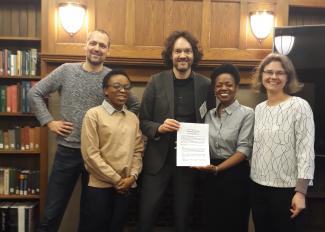
An HSE delegation paid another visit to TC in March 2020, this time featuring now-HSE co-director Michael Haus. On this occasion, the memorandum of understanding was signed by both universities, marking an important step in formalising cooperation revolving around the CML initiative, and extending to a commitment to joint research, student and research exchange, and other ways of cooperation such as a joint lecture series and co-teaching formats. In May 2020 and again in November 2020, brainstorming workshops featuring participants from all institutions of higher learning were held, in part using grant money HSE had acquired through funding pools at Heidelberg University. The workshops focused on delineating both the concept of CML in the present context, and building a CML online module featuring CML material accessible for all participants in the initiative, and serving both as an expandable data base and a forum for exchange.
It is with regard to all of the above that our transatlantic initiative pays witness to the importance of teacher education for all of society. Since 2018, it has represented a concerted, systematic, and sustainable effort to chart new ways of thinking about some of today’s most pressing issues while offering innovative transdisciplinary solutions that involve academic researchers, teachers, students, and respective local communities alike.
TEAM
STEERING GROUP
The steering group identifies aims, provides conceptual guidance and is responsible for the project initiative.
Members (in alphabetical order):
- Yoo Kyung Chang (Teachers College, Columbia University)
- Sarah Creider (Teachers College, Columbia University)
- Ekkehard Felder (Heidelberg University)
- Michael Haus (Heidelberg University & Heidelberg School of Education)
- Nina Jude (Heidelberg University)
- Marco Kalz (Heidelberg University of Education)
- Suzanne Pratt (Teachers College, Columbia University)
- Portia Williams (Teachers College, Columbia University)
TROUBLESHOOTING GROUP
The trouble shooter group provides support with technical and legal questions with regard to the Online Module.
Members (in alphabetical order):
- Yoo Kyung Chang (Teachers College, Columbia University)
- Sergej Gil (Heidelberg University of Education)
- Christiane Wienand (Heidelberg School of Education)


